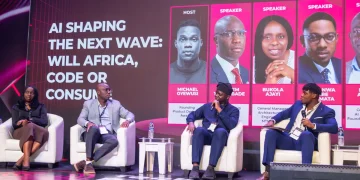Saheed Azeez has released the most powerful version of YarnGPT yet, and it does something no other AI can do properly, which is to speak Nigerian languages like a local.
YarnGPT now handles video translation, turns documents into audio, and speaks five Nigerian languages with real cultural understanding.
From Simple Text Reader to Full Language Powerhouse
Two days ago, Azeez announced his breakthrough on LinkedIn. He admitted feeling nervous about releasing months of work to the public. His fears? “What if users don’t like it? What if it doesn’t gain as much traction?”
Those worries seem misplaced. The new YarnGPT platform does five main things that matter to everyday Nigerians:
- Translates and dubs videos from English into Nigerian languages
- Creates audiobooks and voiceovers for content creators
- Converts PDFs and web pages into spoken audio
- Offers API access for developers building apps
- Provides embeddable audio readers for websites
The system works in Nigerian English, Yoruba, Igbo, Hausa, and Pidgin. Each voice carries an authentic tone, rhythm, and cultural context that global AI models miss completely.
RELATED POST: Building Text-to-Speech AI for Nigeria: Saheed Azeez Speaks on YarnGPT, Machine Learning Challenges, and Future Innovations
Technical Breakthrough Behind Cultural Impact
Azeez built YarnGPT using pure language modelling without external adapters. This approach gives the AI a deeper understanding of how Nigerians actually speak. The model captures subtle accent variations, local expressions, and natural speech patterns.
Previous AI models treated Nigerian languages as afterthoughts. They either ignored local languages completely or delivered robotic, unnatural speech. YarnGPT changes this by training specifically on Nigerian speech data and cultural contexts.
The technical challenge was massive. Nigerian languages lack the huge datasets that English AI models use. Azeez had to create his own training data, spending personal savings on cloud computing power to train the models properly.
Building Solutions Nigerians Actually Need
Azeez focused on solving real problems Nigerians face daily. Content creators can now produce videos in multiple local languages. Students can convert textbooks into audio for better learning. Businesses can reach customers in their native languages.
The video translation feature stands out particularly. Users can upload English videos and get authentic Nigerian language versions. This opens doors for educational content, entertainment, and business communications that speak directly to local audiences.
Document conversion addresses another gap. Many Nigerians prefer audio content due to data costs, reading challenges, or the need to multitask. YarnGPT turns any PDF, website, or document into natural-sounding Nigerian audio.
API Access Opens Developer Opportunities
The new YarnGPT platform includes API access for developers. This lets Nigerian tech companies integrate authentic local language capabilities into their own applications. E-learning platforms, customer service systems, and mobile apps can now speak to users in proper Nigerian languages.
The API approach follows successful models from companies like OpenAI and Anthropic. But YarnGPT focuses specifically on Nigerian and African language needs that global providers struggle to serve effectively.
Developers can embed YarnGPT’s audio reader directly into websites and blogs. This feature helps Nigerian content creators reach a wider audience by offering audio versions of written content.
Addressing Real Market Gaps
Most AI models don’t understand local languages or cultural contexts. Computing power costs remain high for local developers. Educational resources focus on English-speaking markets.
YarnGPT tackles these issues directly. It provides culturally relevant AI capabilities at accessible price points. The platform works in languages Nigerians actually speak at home and in the workplace.
The timing aligns with growing demand for local language technology. Nigeria’s digital economy is growing fast, but language barriers limit the participation of many people. Tools like YarnGPT help bridge these gaps.
Recognition and Future Expansion
YarnGPT already attracted attention from Nigeria’s Minister of Communications and Technology, Dr Bosun Tijani. The project helped Azeez land a high-paying tech job.
His vision includes expanding to more African languages and improving model capabilities. With unlimited computing resources, he would develop a multimodal AI system that handles text, images, audio, and video for African-specific challenges.
YarnGPT proves Nigerian developers can build world-class AI solutions. The project addresses local needs while meeting international technical standards. This combination creates opportunities for export and global recognition.
Nigerian tech companies now have access to sophisticated AI capabilities in local languages. This could accelerate the development of education platforms, customer service tools, and content creation systems designed specifically for the Nigerian market.
















